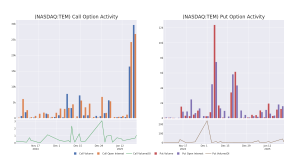I’m 71 years old and my current Thrift Savings Plan (TSP) balance is $315,000 after withdrawing $60,000 this year. This is putting me in a higher tax bracket and I must pay a large amount of federal/state taxes. In addition, my monthly Medicare premium will increase. Will the Medicare premium increase permanently or only the year of withdrawal? Is it too late to develop a strategy to reduce taxes? I don’t need the money right now. What should my withdrawal strategy be?
– Joyce
I’m sorry to hear about the tax surprise, Joyce. While those are never fun, there is still time to take certain actions to reduce your tax burden. That’s not necessarily going to help you with your Medicare premiums, but any potential increase in premium is not permanent.
Let’s break this down so you can see if there’s a way to adjust your withdrawal strategy to potentially reduce both your taxes and Medicare premiums. (And if you need additional guidance related to your retirement income plan, tax strategy or investment portfolio, consider speaking with a financial advisor.)
Most people receive Medicare Part A without paying a monthly premium. There are premiums for Parts B and D, though. If your income exceeds certain limits you may have to pay an additional surcharge known as an income-related monthly adjustment amount (IRMAA).
For 2024, IRMAA starts at incomes above $103,000 for single filers and $206,000 for couples. IRMAA can increase your Medicare Part B premiums to as much as $594 per month in 2024, depending on your income.
However, your IRMAA premium each year is based on your income from two years prior. So your IRMAA (if any) for 2024 is based on your income from 2022. As a result, the government will use your 2024 income to calculate your IRMAA adjustment in 2026.
Additionally, that will be determined based on the IRMAA brackets for 2024, which will be adjusted for inflation and announced in the last few months of 2025 or early 2026. It may seem odd, but exceeding the 2024 IRMAA income limits doesn’t necessarily mean you’ll ever pay IRMAA. If your income is just barely over the IRMAA threshold this year, inflation may push the limit higher by 2026 and leave you unaffected by the surcharge.
(But if you need additional help planning for IRMAA or managing your retirement income, consider working with a financial advisor.)
SmartAsset and Yahoo Finance LLC may earn commission or revenue through links in the content below.
I also think it’s important to point out that there are different measures of income when it comes to determining what you pay in taxes and whether you must pay more for Medicare. Your taxable income largely determines what you owe in taxes, while your modified adjusted gross income (MAGI) determines what you pay for Medicare.


